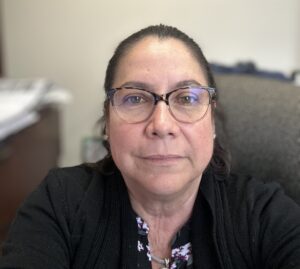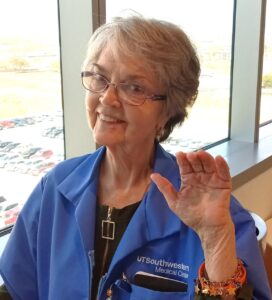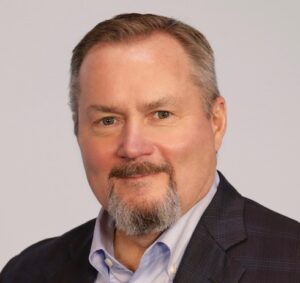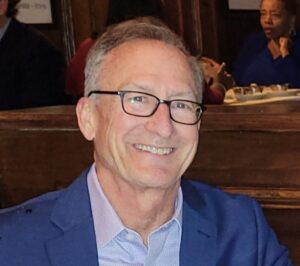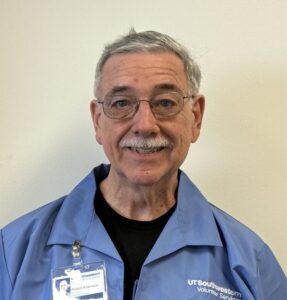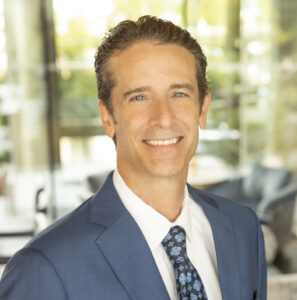Patient Council
Serving as a liaison between the leadership and our community, the Patient Council is an integral component of the Kidney Cancer Program
Mission
Assist program leadership in its mission to provide outstanding and holistic patient care
Assist fellow patients and caregivers in navigating the kidney cancer landscape
Help raise community awareness about the disease
Support research efforts by providing patient experiences and impacts
Vision
Assist
- Guide kidney cancer patients through treatment
- Provide emotional support
- Orchestrate and coordinate volunteer efforts with patient needs
- Connect patients to support services
Educate
- Raise awareness about kidney cancer in our community
- Foster and support community initiatives
- Develop educational programs
- Advocate for research support
Improve
- Identify and prioritize areas of improvement
- Serve as a vehicle for patient concerns
- Act as agents of change to help implement patient suggestions
ENGAGE
- Promote engagement with our community
- Consider and support initiatives by members of our community
- Help coordinate fundraising events
Meet our
Current Patient Advocates
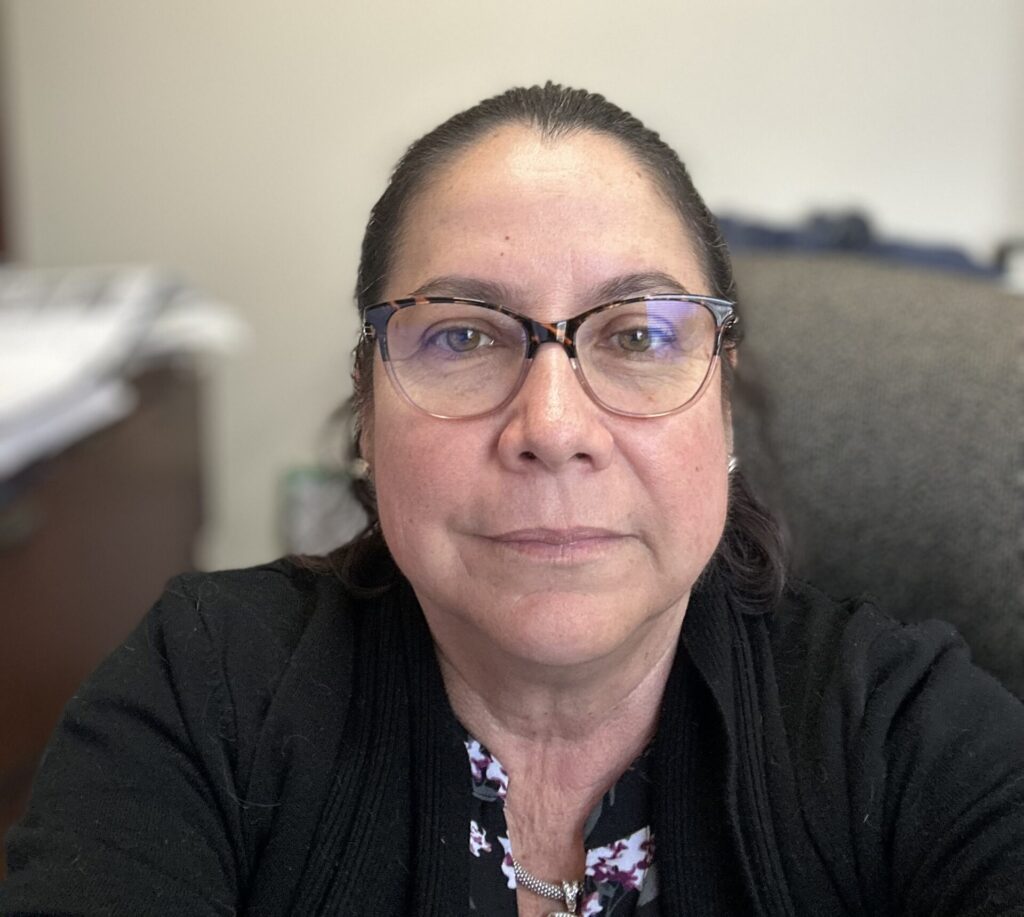
Tell us about yourself!
My name is Mary Ayala. I am a professional civil engineer for the City of Lewisville. I am single and never had any kids. My kids are my four sweet cats that are rescues from the Irving Animal Shelter (2), the Lewisville Animal Shelter and a stray that was living in the storm drains near my house. I play tennis for fun with a group of friends twice a week. Currently, I volunteer on Friday afternoon.
What brought you to the UTSW Kidney Cancer Program?
Kidney cancer. I was diagnosed with kidney cancer more specifically clear cell carcinoma stage 3a. My friend was a strong advocate for me to reach out to UTSW hospital. After meeting with the kidney surgeon, I knew this is where I needed to be for the surgery. The kidney and the cancer were removed on September 28, 2018.
Why do you volunteer with the UTSW Kidney Cancer Program?
I would have liked to talk to another survivor.
What would you like the community/future patients to know about the UTSW Kidney Cancer Program?
UTSW is a teaching hospital and in order to make continued advancements in treating kidney cancer patients, they need patients to volunteer for on-going studies. For my stage of cancer, the only treatment is to remove the cancer (and in my case this included the kidney too) and monitor for reoccurrence or spreading. I participated in 3 studies. One was before removal; they tried a vibrating paddle while I was being scanned. The second study was after removal; I donated my cancer to them. The third was a study for Keytruda. I knew this drug was used on lung cancer and now it is also used on kidney cancer. I was either receiving a placebo or Keytruda. I hope I never find out which one I was receiving.
The program is one of the best in the country. They host annual seminars where you can learn about the latest improvements in technology, medical treatments and meet other patients and their families.
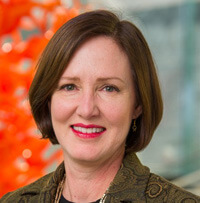
Tell us about yourself!
My passion is serving as a bridge between the patient and scientific communities. Educated as a biomedical engineer, I appreciate medical research, and I volunteer as a patient advocate for many different cancers in a number of different capacities, including ECOG-ACRIN, part of the National Cancer Institute (NCI) National Clinical Trials Network, and the Advocate Engagement Working Group for the NCI Council of Research Advocates, the advocate advisory board to the Director of the NCI. For the past five years, I have been the National Patient Advocate for the NCI Physical Sciences-Oncology Centers program, where I directed advocacy activities at all 12 centers within the network. Recently I became one of four founding editors of a new journal, Convergent Science Physical Oncology, which will include the patient voice in every aspect of the publication and review process.
What brought you to the UTSW Kidney Cancer Program?
I have become increasingly involved in patient advocacy following my diagnosis with breast cancer in 2004 and subsequent treatment at UT Southwestern, and now my goal is to help patients and those who love them understand all kinds of cancer research, from basic science through clinical treatments.
Why do you volunteer with the UTSW Kidney Cancer Program?
I am excited by the opportunity to participate as a member of the KCP Patient Council and to work with a dedicated group of researchers, clinicians, and advocates to develop an active and engaged community that will make a significant impact in the lives of those affected by kidney cancer.
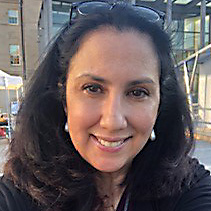
Tell us about yourself!
Currently living in the Washington, D.C., area, I am passionate about patient education and helping build awareness of this disease. Over the years, I have served as a patient advocate with the AACR (American Association for Cancer Research), ASCO (American Society of Clinical Oncology), the American Cancer Society and the Kidney Cancer Association.
What brought you to the UTSW Kidney Cancer Program?
A native of Bogota, Colombia, my father was diagnosed with advanced renal cancer in 2011. He lost his battle with the disease nine months later. During those months of treatments, my background in microbiology proved helpful as I received a hands-on education in kidney cancer, from learning to recite a pharmacopeia of drugs to understanding and navigating the complex treatment regimens and associated side effects. Perhaps hardest for me to wrap my hands around was the general lack of awareness and that there was – and still is – no method for early detection when the cancer is most treatable.
Why do you volunteer with the UTSW Kidney Cancer Program?
Despite the toll kidney cancer took on my father and our family, it exposed us to an amazing community of people who did their best to help in any way they could. It also left me with an unintended gift – experience as a kidney cancer advocate and the empathy for those who need one.
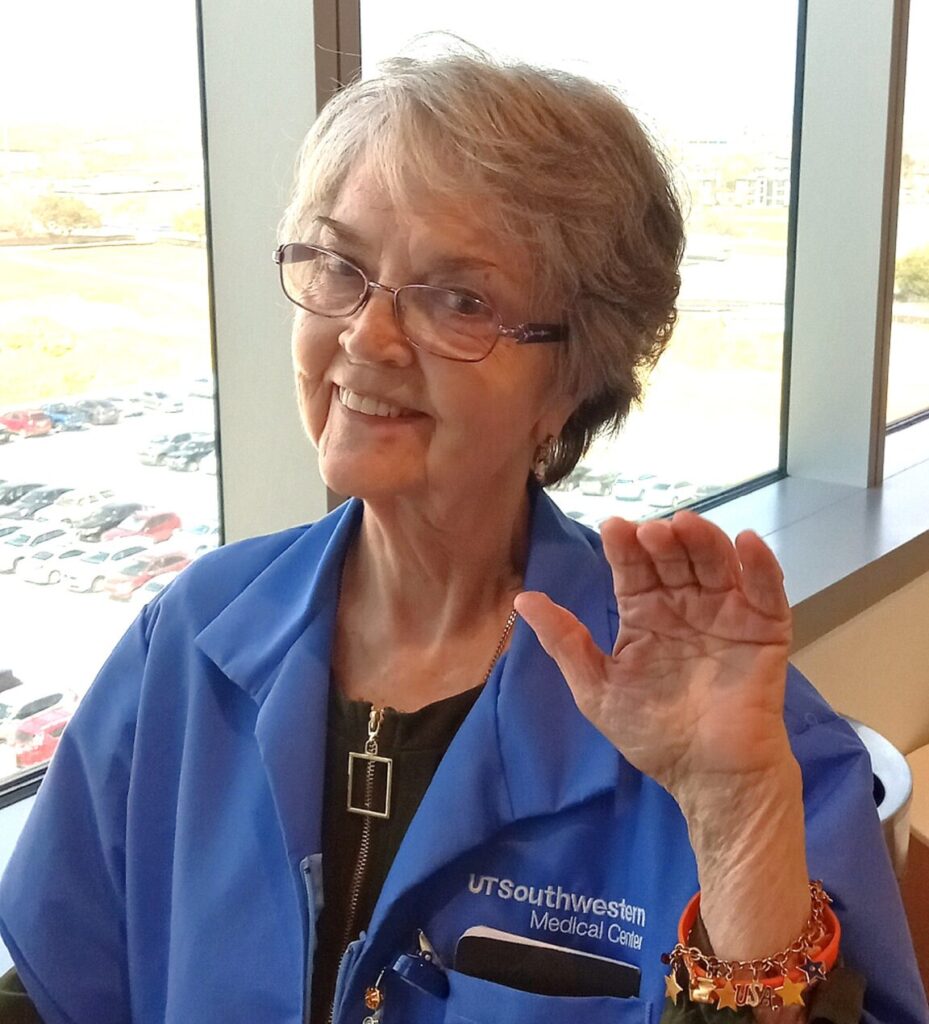
Tell us about yourself!
I am a widow of 4 years. My family consists of two adult kids that have accomplished careers, 4 grandchildren that are all college educated. Best of all I am blessed with 4 great-grandkids. My hobbies include Crocheting hats & scarves for friends & first responders. Volunteer teaching sign language to young children. I am a Kiwanis Club member & help with different activities they need help with. I am part of the Adopt A Cop Program. Listening to music.
What brought you to the UTSW Kidney Cancer Program?
Attending the 10th Anniversary of the UT Southwestern Kidney Cancer Program.
I wanted to continue to make a difference any way I can as a Patient Advocate Volunteer & keep learning.
Why do you volunteer with the UTSW Kidney Cancer Program?
Volunteering makes life better! Patients seem to benefit from volunteers communicating with them
to see if there are any concerns or issues or just learning about them.
What would you like the community/future patients to know about the UTSW Kidney Cancer Program?
The patient is never alone in their struggles to get better. UT Southwestern is the future of medicine & the Hospital of Hope. The doctors are some of the best. The UT Southwestern researchers are developing new treatments for Clinical trials. The Cancer Center is highly rated in the care & excellency it provides for the patients.
Is there anything else you’d like to add?
I am grateful for the opportunity to be able to be a small part of the UT Southwestern team as a Patient Advocate on 9th floor UT Simmons Cancer Center. Thanks to all that have supported all the Patient Advocates.
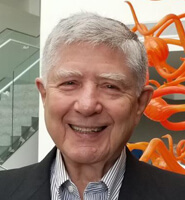
Tell us about yourself!
Born, raised, and educated in Germany, I left the country in 1963 to work for the French subsidiary of a major German corporation. After a 30-year career managing company operations in a number of different countries, my wife and I finally retired to Florida in 1997. Not long after, we relocated to Dallas to be near our daughter and my wife’s mother. I now had time to take up hobbies and pursue personal interests, however, it did not satisfy me.
What brought you to the UTSW Kidney Cancer Program?
In 2011, my wife fell ill with kidney cancer. It was a very complicated case and an extremely dangerous variety of the disease. We owe her life to the highly competent and caring doctors at UT Southwestern, who removed one of her kidneys and eradicated the disease. For seven years she was cancer-free until suddenly, in 2018, it came back in her lungs. State-of-the-art radiation helped prevent the tumors from spreading.
Why do you volunteer with the UTSW Kidney Cancer Program?
I wanted to do something meaningful and rewarding. Volunteering with a hospice organization and visiting patients during the last phase of their lives provided me with that opportunity. As a caregiver, I know that the disease does not only affect the patient but also the whole family. Out of gratitude for saving the life of my wife, I decided to volunteer for the Kidney Cancer Program, giving patients encouragement and hope, knowing that strengthening the fighting spirit can be a decisive factor in stabilizing the condition of a person who is battling cancer.
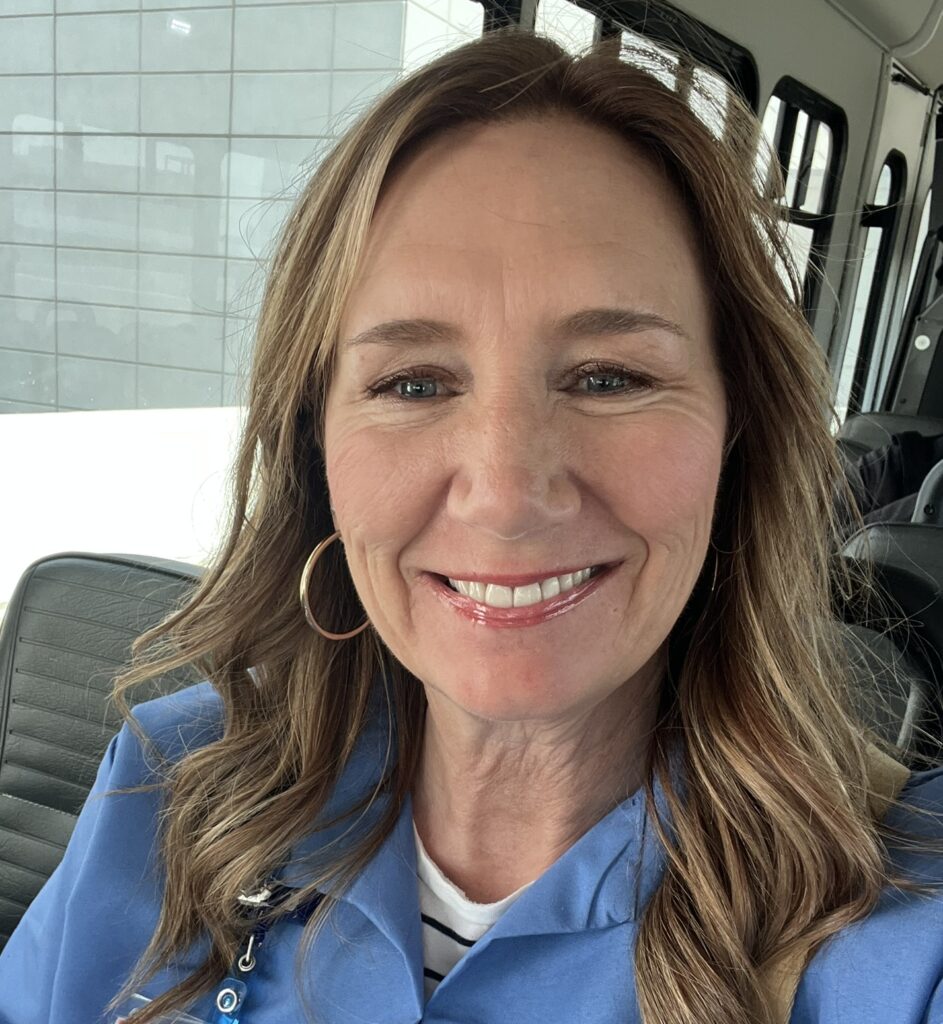
Tell us about yourself!
Anne grew up in Austin, Texas, earned a master’s degree in social work from UT Austin, and has lived in the Dallas-Fort Worth area since 2010 with her husband, Danny, and their two sons. Anne and Danny are new “empty nesters” and huge Texas Football fans, especially since their younger son, Eric, is on the team! In the off-season, Anne enjoys swimming, going on beach trips, and spending as much time with family and friends as possible.
What brought you to the UTSW Kidney Cancer Program?
Anne got involved with the Kidney Cancer Program (KCP) when Danny was diagnosed with metastatic kidney cancer in April 2024.
Why do you volunteer with the UTSW Kidney Cancer Program?
She thoroughly enjoys providing emotional support to patients and caregivers, connecting patients with support services, providing administrative support for KCP’s educational and research efforts, and reassuring patients that their care is in great hands with UT Southwestern’s Kidney Cancer Program!
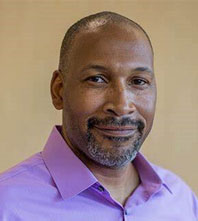
Tell us about yourself!
Professionally, I work in public education with the Austin ISD in Austin, Texas. I am also an adjunct professor at Huston-Tillotson University. I currently serve as Chair of the ASCO (American Society of Clinical Oncologists) Health Equity & Outcomes Committee, and I am a panel member with the Canadian Institutes for Health Research (CIHR). In addition to working with the Patient-Centered Outcomes Research Institute (PCORI) as a Merit Protocol Reviewer, I am a past member of PCORI’s Clinical Trials Advisory Panel. I am actively involved with the Society of Urological Surgical Associates (SUNA) and the American Association for Cancer Research (AACR), and I review manuscripts on behalf of the Urologic Nursing Journal and the Journal of Health Care for the Poor and Underserved.
What brought you to the UTSW Kidney Cancer Program and why do you volunteer?
I became interested in cancer research advocacy and patient advocacy when I noticed significant differences in patient experiences after a cancer diagnosis. Having earned a doctorate in health care administration, my research interests lie in health education, health promotion, and cancer prevention and healthier lifestyle interventions, with a focus on underserved populations. I hope to bring attention to equity in cancer care as well as support services for all those diagnosed with cancer and their caregivers. I have published articles in peer-reviewed journals on the topics of community-based participatory research with use of peer educators from minority populations.
A significant part of my advocacy efforts involve collaborating with national organizations and state agencies. Through my participation in national meetings and review panels, I’m able to share information with researchers about how cancer impacts patients and their communities culturally.
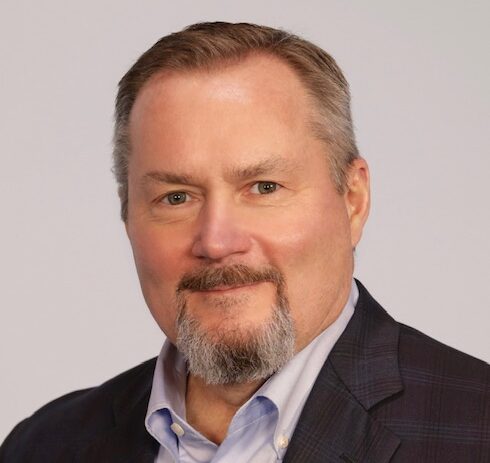
Tell us about yourself!
I’m married with 4 children and 2 grandchildren. After learning of my cancer diagnosis, I retired to enjoy time with my family and live life to its fullest. I enjoy just about anything outdoors, and support our local food pantry as a volunteer and board member.
What brought you to the UTSW Kidney Cancer Program?
In 2021, I was diagnosed with Stage 4 Kidney Cancer.
Why do you volunteer with the UTSW Kidney Cancer Program?
I have found talking to other cancer patients to be comforting as well as a source of inspiration, and I enjoy sharing the same with other patients.
What would you like the community / future patients to know about the UTSW Kidney Cancer Program?
UTSW’s KCP is a valuable means to aid patients in their journey with cancer.
Is there anything else you’d like to share?
My experience with UTSW has been wonderful. There is a strong sense of community, commitment, and care for each patient.
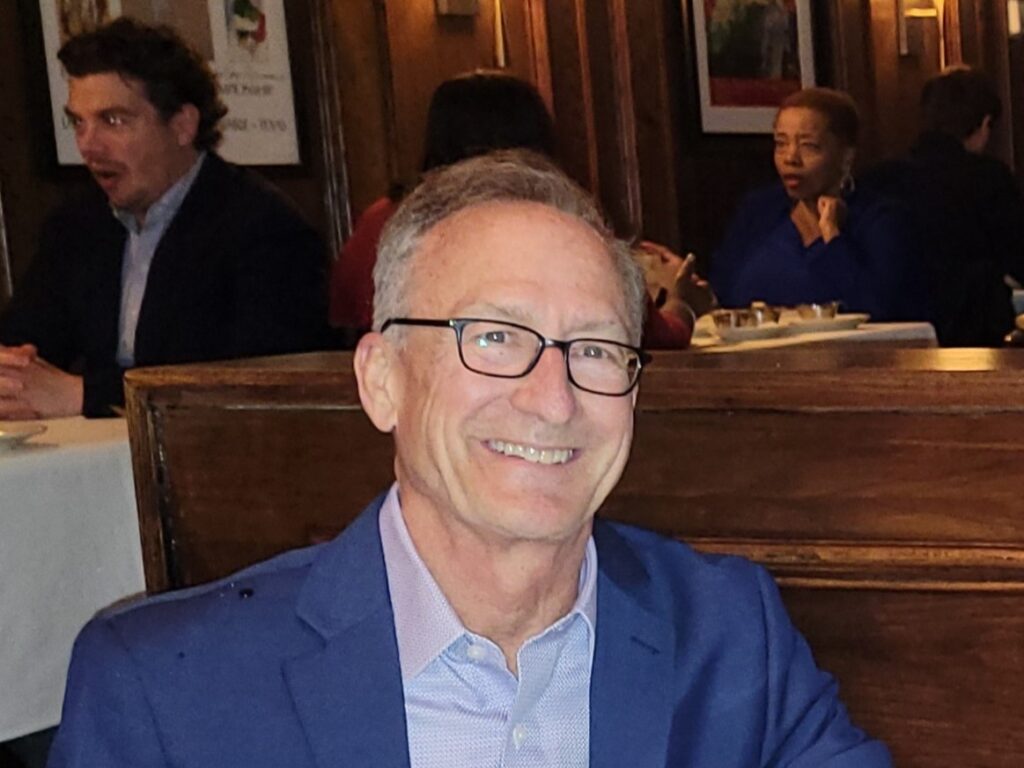
Tell us about yourself!
I am a 65 year old, kidney cancer survivor; and seven years into my kidney cancer journey. I am married, recently retired, and have also recently returned to Dallas after living in Columbus, Ohio for almost 30 years. My wife and I have two sons ages 36 and 33, and two grandsons ages 5 and 3. Beyond volunteering in several areas, my primary hobby is boating.
What brought you to the UTSW Kidney Cancer Program?
Two things: I am a patient in the GU Clinic at Simmons CCC; and when I learned of the KCP I wanted to get involved by volunteering in the Clinic and w/ the KCP events.
Why do you volunteer with the UTSW Kidney Cancer Program?
I find it extremely rewarding to talk w/ patients at UTSW’s Simmons CCC. It gives me a sense of caring and hope, and I hope it is helpful to others; so many individuals have done so much for me in my cancer journey.
What would you like the community / future patients to know about the UTSW Kidney Cancer Program?
That in addition to the wonderful physicians, researchers and medical professionals at Simmons CCC, there also exists a cohort of caring patient oriented advocates to help patients, caregivers and families.
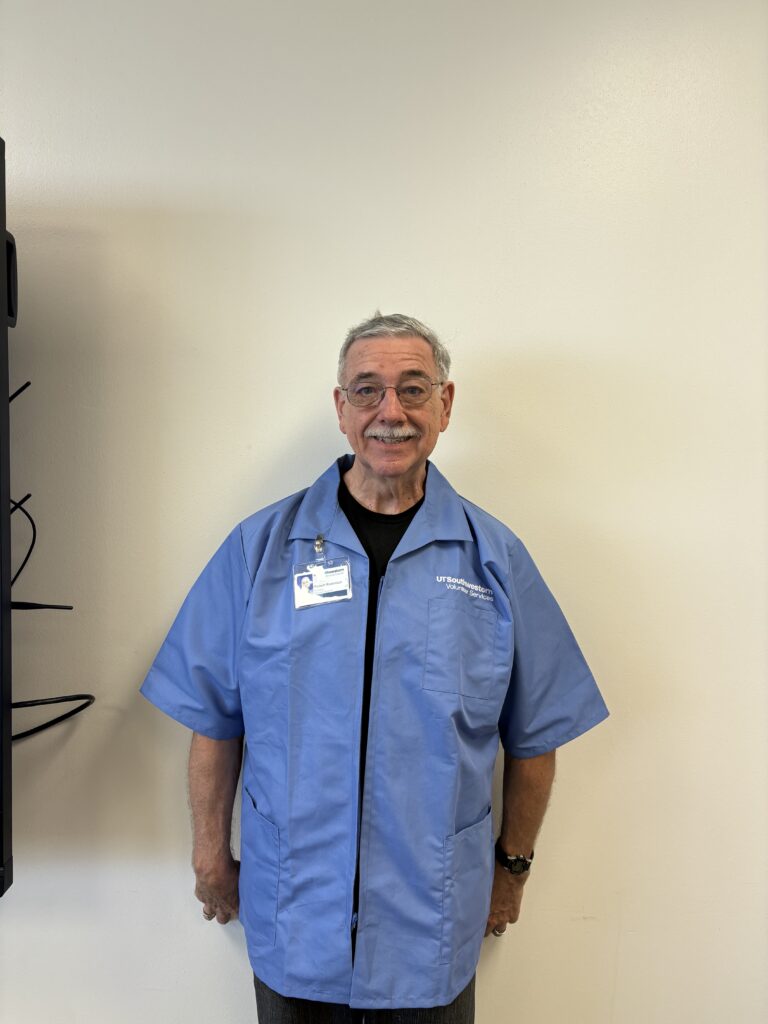
Tell us about yourself!
My wife and I have enjoyed 37+ years of marriage. She brought two daughters into the union. They have blessed us with a grandson and three granddaughters. I retired 2+ years ago after 41+ years as a city firefighter. We both enjoy home & garden projects and visits with friends and family. Also have been a Meals On Wheels volunteer for 10+ years.
What brought you to the UTSW Kidney Cancer Program?
I attended a KCP Educational Event in April of 2024. The content was very inspiring and I met several of the program’s volunteers. Also, 30 months earlier, I had experienced Clear Cell Renal Cell Carcinoma followed by a Nephrectomy. I most certainly wish I had discovered UTSW KCP prior to that surgery at different metroplex hospital.
Why do you volunteer with the UTSW Kidney Cancer Program?
I believe the KCP to be the “Best In Class” and essential to extending the quality of the lives of any and all afflicted by this disease.
What would you like the community/future patients to know about the UTSW Kidney Cancer Program?
That this is your “One Stop Shop” for kidney cancer care. That all can have total confidence in the care received within the Program and from the doctors and staff that oversee.
Is there anything else you’d like to add?
I worked 12+ years part time as a Dallas County Sheriff’s Dept. detention officer. I’ve lived in Midlothian for 47 years, but was born and raised in Oak Cliff. A product of DISD and DCCC.
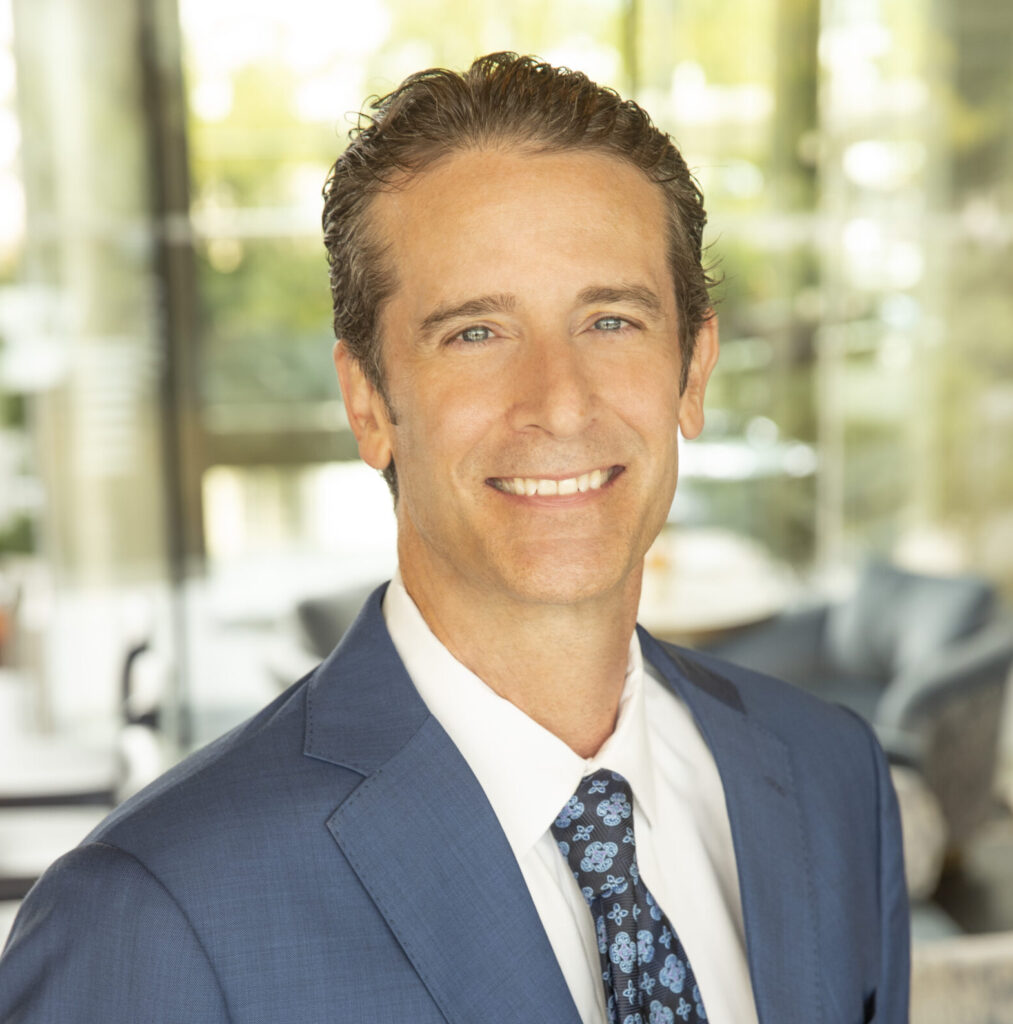
Tell us about yourself!
I have been married for 25+ years to Stephanie, another volunteer with the KCP. We have one 18 year old son. I am a lawyer who practices civil litigation. I try to stay active in my free time, whether that means projects around the house or spending time exploring Dallas. Our family particularly enjoys visiting museums and learning more about the world around us.
What brought you to the UTSW Kidney Cancer Program?
I was diagnosed with stage 4 metastatic kidney cancer in February 2023. I sought the best care I could get, and it turned out to be 15 minutes down the road at UTSW.
Why do you volunteer with the UTSW Kidney Cancer Program?
My medical team at UTSW has given me so much help and hope on my kidney cancer journey, and I am excited about an opportunity to help other patients navigate their treatment while also hopefully being a resource for the team of caregivers at UTSW.
What would you like the community/future patients to know about the UTSW Kidney Cancer Program?
Throughout my career, I have had the opportunity to visit with cancer doctors on both a professional and personal level. In doing so, I have spent a great deal of time at cancer treatment centers and been able to witness the environment at many of those facilities. I often found them to be very rigid environments where the caregivers did not interact with the patients on a personal level. That is the complete opposite of my experience as a cancer patient at UTSW. My caregiving team has gotten to know me and my family and made us feel like we are part of the UTSW family. Every member of the UTSW team has always made sure that my family was given every minute of their time that we needed. Every visit I am made to feel as if I am their only patient.
Is there anything else you’d like to add?
Every cancer patient as well as his/her family will feel isolated and like they are on an island by themselves. As a patient at UTSW you will not be alone, and every one of us are supported not only by the caregivers at the hospital but all of the staff and volunteers as well.

Tell us about yourself!
I’m happily married to John, another KCP Volunteer, and we have one son. Our small family enjoys spending time together at home, traveling and visiting as many museums as possible, no matter our location. I enjoy just about anything outdoors, and support our local food pantry as a volunteer and board member.
What brought you to the UTSW Kidney Cancer Program?
My husband, John Spillane, was diagnosed with metastatic kidney cancer in 2023 and is being treated at UTSW KCP.
Why do you volunteer with the UTSW Kidney Cancer Program?
UTSW has taken tremendous care of my husband, and I wanted to give back to the Kidney Cancer Program through volunteering.
What would you like the community/future patients to know about the UTSW Kidney Cancer Program?
You are in the best place to treat your kidney cancer. Not only is the UTSW KCP one of the top two kidney cancer programs in the country, KCP and its patients are supported by the UTSW Simmons Comprehensive Cancer Center. The ‘comprehensive’ in the name means just that: if the patient or a family member needs medical, physical, emotional, mental or spiritual assistance, the Simmons Center will meet their needs.

